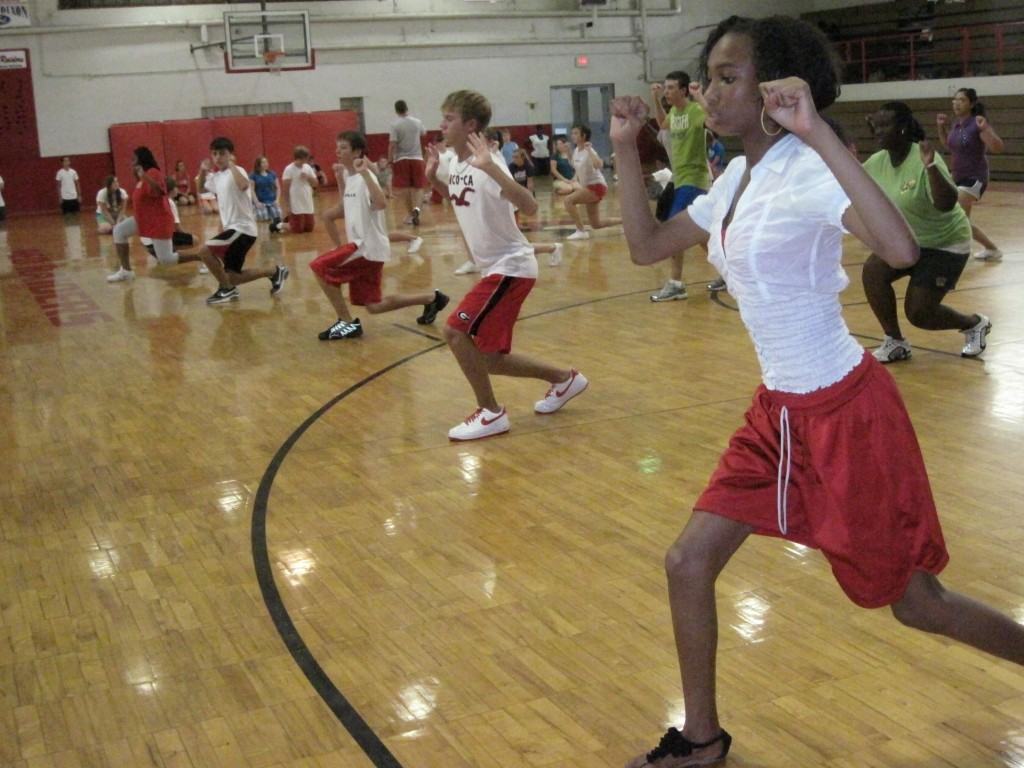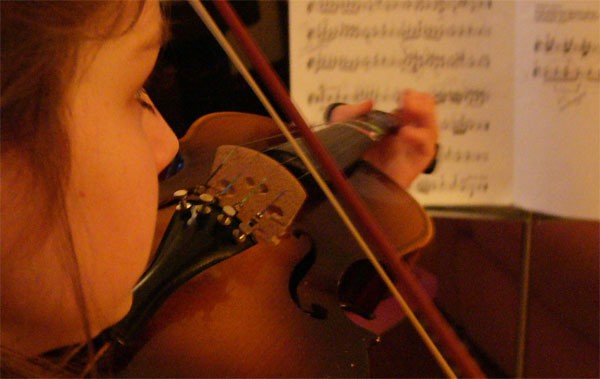
You might be excused for assuming that one of the reasons why music education in schools is facing so many challenges is because education stakeholders do not think it’s valuable. It would make sense to think that budget cuts on music and the arts are the result of parents and teachers not valuing such education.
The reality on the ground does not follow this logic at all. According to a recent survey involving 1800 teachers and parents, participants would rather cut Advanced Placement classes or gym than music.
They also believe music should be a required class in middle school and that students should have a chance to learn an instrument as early as elementary school.
The study, “Striking a Chord: The Public’s Hopes and Beliefs for K-12 Music Education in the United States 2015,” aimed to document the attitudes and beliefs of parents and teachers about music education. It surveyed 1,000 teachers and 800 parents. Via Education Week
The teachers that participated in the survey included English, science, mathematics and arts teachers, with arts teachers comprising only about 12 percent of the sample.
The survey also revealed that the children of 1 in 3 parents received a year or less of music education while the children of one in six parents had received no music education at their school. Further, parents and teachers believe that the quality and quantity of music education programs differs significantly between schools, with wealthier schools receiving greater benefits.
Participants expressed that they would like schools to have more quality music programs and instruments, as well as additional professional development for teachers. They also believed that when parents are involved, schools are more likely to have music programs.

In fact, if given the opportunity to choose which programs to cut in the face of limited funding, participants said they would rather cut Advanced Placement classes or even athletics programs over music.
The sports aspect was particularly interesting because often communities see sports programs as a critical part of the public school experience, too. Respondents were asked to identify possible budget cuts in 15 different areas. They found 12 areas they would rather cut than music, including administration and standardized testing. Via Education Week
According to the survey findings, parents and teachers also think that music is critical to a child’s social and emotional development. These sentiments are consistent with those of a previous poll in which individuals that had spent significant time in a music program while in school said it had contributed to their personal sense of fulfillment.
The more time one spends in a music program, the more they are to say it has been influential in contributing to their current level of personal fulfillment. Among all those involved in a music program, over one-third (37%) say it was extremely or very influential with one-third (32%) saying it was somewhat influential. Among those who spent less than three years in a music program, one in five (20%) say it was extremely or very influential, but that rises to one-third (35%) for those involved for 3-5 years, jumps to three in five (59%) for those involved 5 or more years, and skyrockets to four in five (81%) of those still involved in music. Via The Harris Poll

In addition to developing a sense of fulfillment, participants in the poll believed that they developed various skills that helped them succeed at their job or careers as a result of the music education they received.
Music education can provide more than just learning how to sing and/or play an instrument. It also has the ability to provide various skills that people may need for success in a job or career outside of music. In fact, over half of those involved in a music program say music education was extremely or very important in providing them with the skills of working towards common goals (54%) and striving for individual excellence in a group setting (52%), while half (49%) say it provided them with a disciplined approach to solving problems. Almost half of those involved in a music program say music provided them with the skills of creative problem solving (47%) and flexibility in a work situation (45%). Via The Harris Poll
With parents, teachers and even former students emphasizing the value of music education, there really should be no debate about whether to include music education as part of the core curriculum in our schools.
Featured Image: Image Credit
Music education stimulates the child’s brain in a number of ways that helps to improve verbal skills, communication skills and visual skills
— DJ Jimmy Jatt (@djjimmyjatt) January 11, 2016
FM @NicolaSturgeon watches Warout PS music class & announces £4m for education attainment https://t.co/boH0WpNveB pic.twitter.com/gSkKyKhA9U
— First Minister (@ScotGovFM) January 11, 2016
Related Articles:
Top Ten Advocacy Points for Parents
1. In a 2000 survey, 73 percent of respondents agree that teens who play an instrument are less likely to have discipline problems.
– Americans Love Making Music – And Value Music Education More Highly Than Ever, American Music Conference, 2000.
2. Students who can perform complex rhythms can also make faster and more precise corrections in many academic and physical situations, according to the Center for Timing, Coordination, and Motor Skills
– Rhythm seen as key to music’s evolutionary role in human intellectual development, Center for Timing, Coordination, and Motor Skills, 2000. Via Children’s Music Workshop
Music Education Curriculum in Schools: ‘It’ Is Something Worth Fighting For
You know it when you see “it,” and when you don’t. A school that has “it” is different than one that doesn’t. “It” enlivens an entire school because everyone is “making it” and “expressing it” in age appropriate ways.
You can hear and feel the sequence of development from grade level to grade level, and the outcomes are seen and heard via individual and group activities. Learning experience offers a range of personal and material explorations along with rigorous training in the basics. There truly is no substitute for “it”. Via SBO Magazine
Why Preschool Teachers Need Music Education in Their Classrooms
As more education policy makers become familiar with research demonstrating the many benefits of music in learning, there seems to be increasing interest in new ways of using musical elements in early childhood education. Preschool teachers who understand how music education supports their students’ development have many options for integrating it into their classrooms.
Preschool music education supports development at a critical period in children’s lives Via Concordia University

